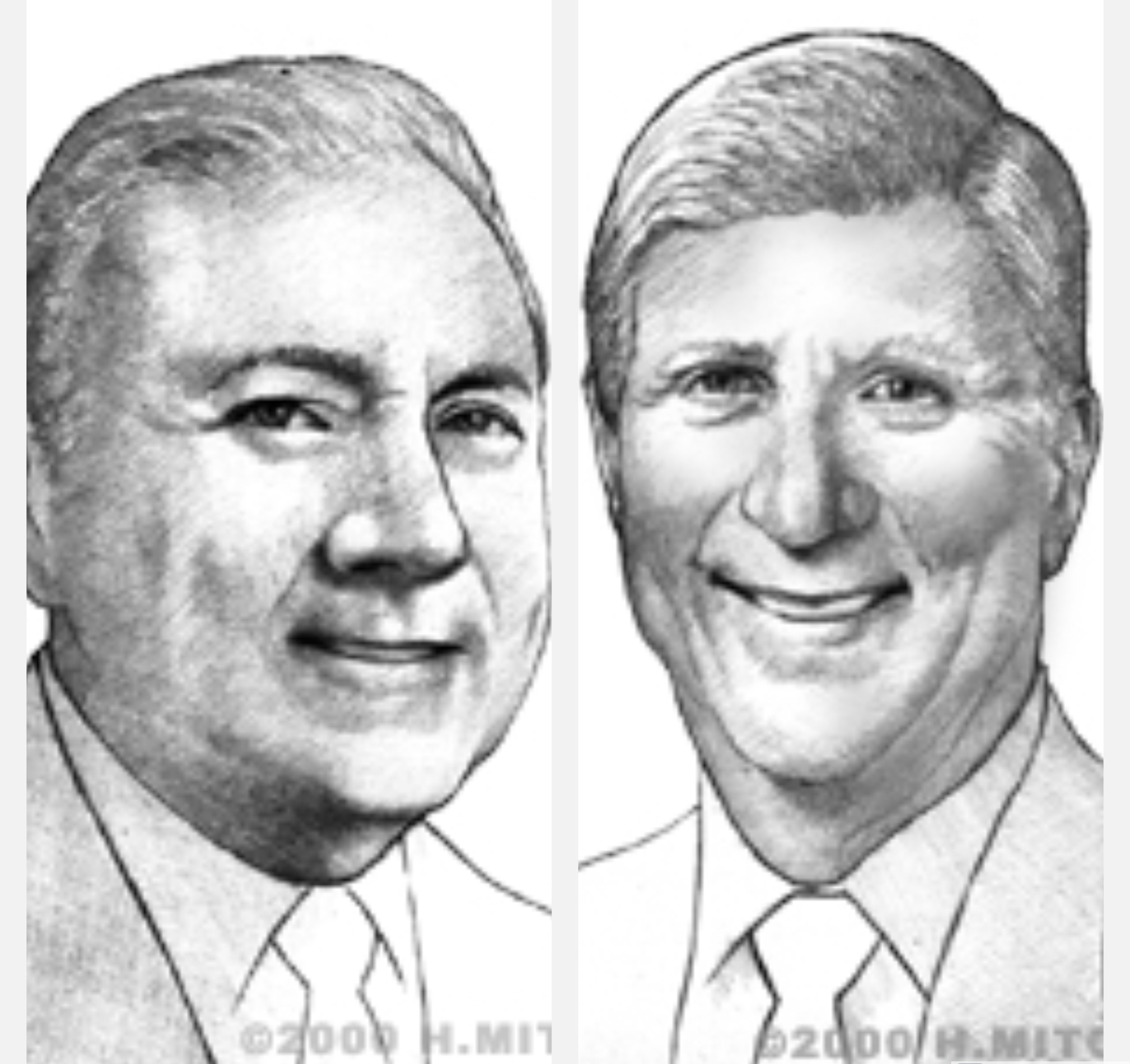Joel Engel and Richard Frenkiel
Today's cellular communications industry would not be what it is without the contributions made by Richard H. Frenkiel and Joel S. Engel, former employees of AT&T's Bell Laboratories.
Engel grew up in New York state and received his bachelor's degree in engineering from the City College of New York in 1957. He went on to earn a master's degree from the Massachusetts Institute of Technology and a PhD from the Polytechnic Institute of Brooklyn. Frenkiel, a native of Brooklyn, earned a bachelor's degree in engineering from Tufts University and completed his master's degree at Rutgers University in 1965.
In 1962, both Engel and Frenkiel were working for Bell Labs in New Jersey where they began what would be a fruitful partnership. At the time, only a few hundred people in a typical city had car phones. Few conversations could happen at one time, due to a lack of free radio channels. Channels were constantly busy because only about a dozen customers could use a system at one time, and waiting lists were long.
Working with a team of nearly 200 Bell Lab engineers, Engel and Frenkiel developed a concept that multiplied the capacity of each channel by 1,000. Their system divided cities up into small coverage areas called cells. A land-based network tracked cars (or other mobile units) within cells and switched calls from cell to cell as the unit moved. With this system, Frenkiel and Engel shaped the basic cellular system architecture and solved complex problems such as how cellular systems locate vehicles and hand off calls from cell to cell as vehicles move.
Engel and Frenkiel's work led to a series of proposals to the Federal Communications Commission (FCC) in the 1970s and became the foundation for the cellular systems which have revolutionized mobile communications and made today's convenient cellular services readily available. Frenkiel has said that it is difficult for him to take as much credit as he has been given for his work on cellular technology, insisting that it was all a "team effort." He stated, "It is hard for any one person to seem like he is responsible for anything. As I said, hundreds of people were working on it in my company alone."
Nevertheless, in 1987, Frenkiel and Engel were awarded the Alexander Graham Bell Medal of the IEEE "for exceptional contributions to the advancement of telecommunications." In 1994, the pair received National Medals of Technology from President Clinton.
Following the proposals to the FCC, Frenkiel went on to lead the team of Bell Labs engineers who wrote specifications for and refined the cellular system architecture, reported on system tests to the FCC, and helped plan the first wave of cellular systems for deployment in the early 1980s. In addition, Frenkiel holds the patent for the "underlaid cell" concept, which simplified the process of adding smaller cells to a system as more customers demand service. Frenkiel retired from AT&T in 1993 and began working as an industry consultant, teacher, and writer in New Jersey.
Meanwhile, Engel is credited with providing the research required to focus the optimization of system parameters and characterize cellular capacity sufficiently to arrive at federal rules and regulations for standardization and use. He left Bell Labs in 1983 to become Vice President of Research and Development for MCI. From 1987 to 1997, he served as Ameritech's Vice President of Technology. Today, Engel is President of JSE Consulting, an Armonk, New York company that provides technical guidance to telecommunications equipment suppliers and due diligence to venture capitalists. He was elected a Fellow of the Institute of Electric and Electronic Engineers (IEEE) and a member of the National Academy of Engineering.
The results of Engel's and Frenkiel's efforts continue to have great impact on society. Today, there are more than 19 million cellular users in the U.S., with new subscribers signing up every day.


